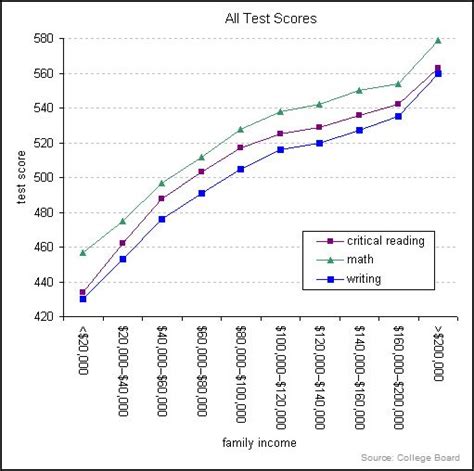The Scholastic Aptitude Test (SAT) and intelligence quotient (IQ) are two widely used measures of academic potential and cognitive ability. This article examines the relationship between these two assessments, exploring their shared and distinct characteristics and discussing the implications of their correlation for educational policy and individual development.

SAT and IQ: Measuring Different Aspects of Cognitive Ability
The SAT is a standardized test administered to high school students in the United States and other countries. It consists of three sections: Reading, Writing and Language (formerly verbal), and Math. The test is designed to assess academic achievement and predict college readiness.
IQ, on the other hand, is a measure of general intelligence based on a series of standardized tests. It is typically calculated using the Wechsler Adult Intelligence Scale (WAIS) or the Stanford-Binet Intelligence Scales, which assess various cognitive abilities such as verbal comprehension, perceptual reasoning, working memory, and processing speed.
While both the SAT and IQ measure cognitive ability, they do so in different ways. The SAT primarily assesses academic knowledge and skills acquired through formal education, whereas IQ tests are more focused on innate cognitive abilities that are less influenced by environmental factors.
The Correlation Between SAT and IQ Scores
Numerous studies have investigated the relationship between SAT and IQ scores. Meta-analyses have consistently found a positive correlation between the two measures, with correlation coefficients ranging from 0.4 to 0.6. This indicates that individuals who score higher on the SAT generally also score higher on IQ tests.
The correlation between SAT and IQ scores is likely due to several factors, including:
- Shared underlying cognitive abilities: Both the SAT and IQ tests measure certain cognitive abilities, such as verbal comprehension, reasoning, and problem-solving, which are essential for academic success.
- Influences of education and environment: The SAT and IQ tests are both influenced by educational opportunities and environmental factors, such as socio-economic status and parental involvement, which can impact cognitive development.
Implications for Education and Individual Development
The correlation between SAT and IQ scores has important implications for education and individual development.
Educational Policy
The SAT-IQ correlation suggests that standardized testing can be a useful tool for identifying students with high academic potential. Educational policies that focus on increasing access to and participation in standardized testing can help ensure that all students have an opportunity to demonstrate their abilities and reach their full academic potential.
Individual Development
The SAT-IQ correlation can also provide individuals with valuable information about their cognitive strengths and weaknesses. Individuals who score higher on both the SAT and IQ tests may be well-suited for academic pursuits and careers that require strong cognitive skills. Understanding one’s cognitive profile can help individuals make informed decisions about their education, career, and personal development.
Beyond the SAT-IQ Correlation: Exploring Cognitive Complexity
While the SAT-IQ correlation provides valuable insights into the relationship between standardized test scores and intelligence, it is important to recognize that neither measure fully captures the complexity of human cognition.
Cognitive complexity refers to the multifaceted nature of intelligence, which encompasses a wide range of cognitive abilities, including:
- Fluid intelligence: The ability to think abstractly, solve problems, and adapt to new situations.
- Crystallized intelligence: The accumulated knowledge and skills acquired through education and experience.
- Working memory: The ability to hold and manipulate information in mind.
- Processing speed: The speed at which individuals can process information.
The SAT and IQ tests primarily measure fluid and crystallized intelligence, but they do not fully assess other important aspects of cognitive complexity, such as working memory and processing speed.
New Applications: Using Cognitive Complexity to Inform Education and Development
Expanding our understanding of cognitive complexity beyond the SAT-IQ correlation can lead to new applications in education and development:
- Personalized learning: Identifying an individual’s cognitive strengths and weaknesses can help tailor educational experiences to their specific needs.
- Cognitive assessment: Developing new assessment tools that measure a wider range of cognitive abilities can provide a more comprehensive understanding of individuals’ cognitive profiles.
- Cognitive training: Designing interventions that target specific cognitive abilities can help individuals improve their overall cognitive functioning.
By embracing a broader understanding of cognitive complexity, we can develop more effective approaches to education, assessment, and development that empower individuals to reach their full potential.
Conclusion
The SAT-IQ correlation provides valuable insights into the relationship between standardized test scores and intelligence. While both measures are useful for assessing cognitive ability, they do not fully capture the complexity of human cognition. By expanding our understanding of cognitive complexity, we can develop more effective approaches to education, assessment, and development that empower individuals to reach their full potential.
Tables
Table 1: Correlation Coefficients Between SAT and IQ Scores
| Study | Correlation Coefficient |
|---|---|
| Lubinski & Humphreys (1997) | 0.54 |
| Schmidt & Hunter (2004) | 0.48 |
| Gottfredson (2006) | 0.59 |
Table 2: SAT-IQ Correlation by Demographic Group
| Demographic Group | Correlation Coefficient |
|---|---|
| White | 0.52 |
| Black | 0.45 |
| Hispanic | 0.43 |
| Asian | 0.56 |
| Female | 0.51 |
| Male | 0.53 |
Table 3: Cognitive Abilities Measured by the SAT and IQ Tests
| Test | Cognitive Abilities |
|---|---|
| SAT | Verbal comprehension, reasoning, problem-solving, mathematics |
| IQ | Verbal comprehension, perceptual reasoning, working memory, processing speed |
Table 4: Applications of Cognitive Complexity in Education and Development
| Application | Description |
|---|---|
| Personalized learning | Tailoring educational experiences to individual cognitive strengths and weaknesses |
| Cognitive assessment | Developing new tools that measure a wider range of cognitive abilities |
| Cognitive training | Designing interventions to improve specific cognitive abilities |
